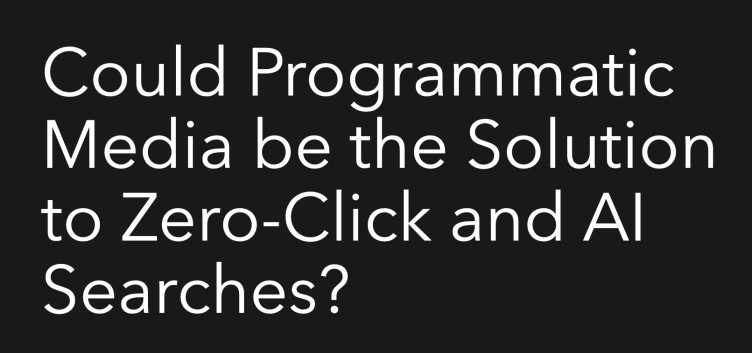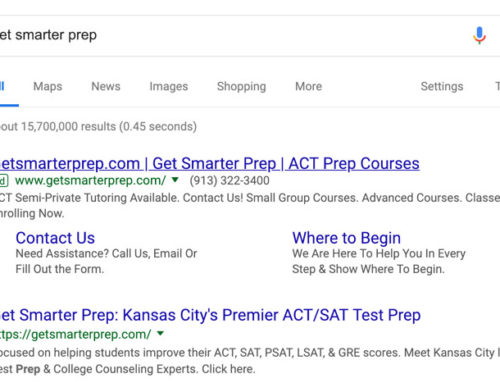For years, advertisers have been told to create valuable content, and that they would be rewarded with high SERP rankings and subsequent web traffic. Zero-click and AI are changing that paradigm.
These were the topics that Charity Huff of January Spring and I discussed on a recent episode of Simpli.fi TV.
Let’s start with Google’s zero click initiative. SEM Rush says “A zero-click search is when someone enters a query on a search engine but doesn’t end up clicking on any of the results.”
In the following example, a search for “reasons AC is broken” results in Google providing 5 possible answers to the question. The answers were originally provided by Fred’s Heating and Air. But the searcher is not required to click on the link to Fred’s website because Google has served it up on a platter.
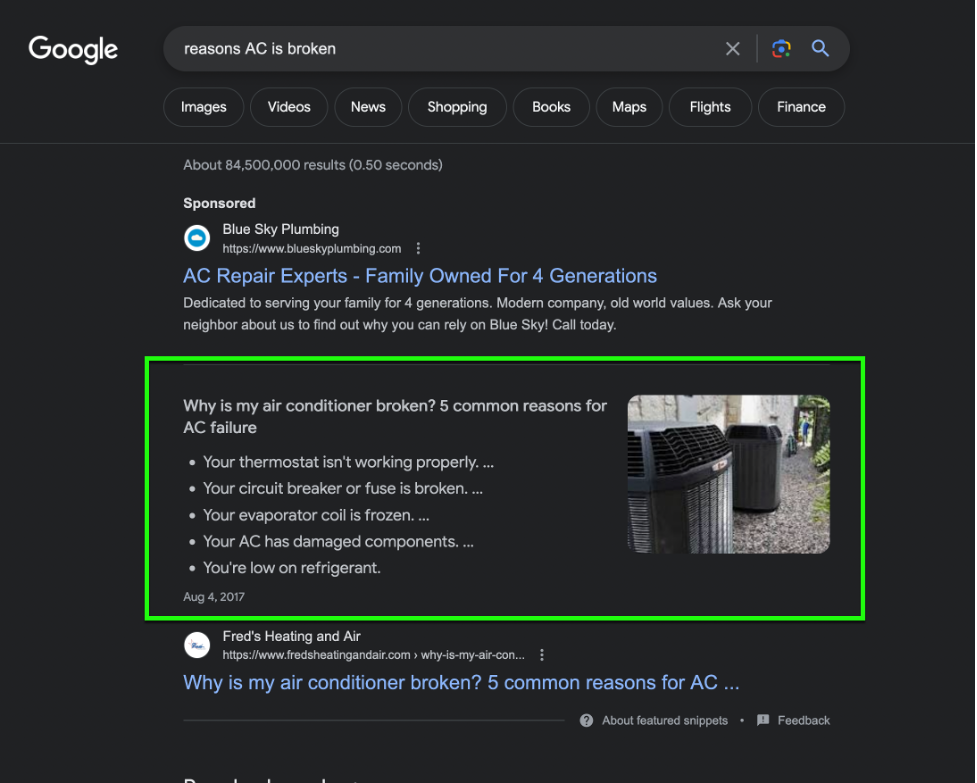
We can assume that Fred’s created that content in order to rank high on Google, and that seems to have worked. But I doubt very much they imagined a scenario that didn’t also drive traffic to their site when they published this content.
At least Google sites the source and does provide an avenue for searches to click through to Fred’s site if they are looking for more than these five bullets.
What about AI? Here’s a search for “what are some reasons my AC is broken?”
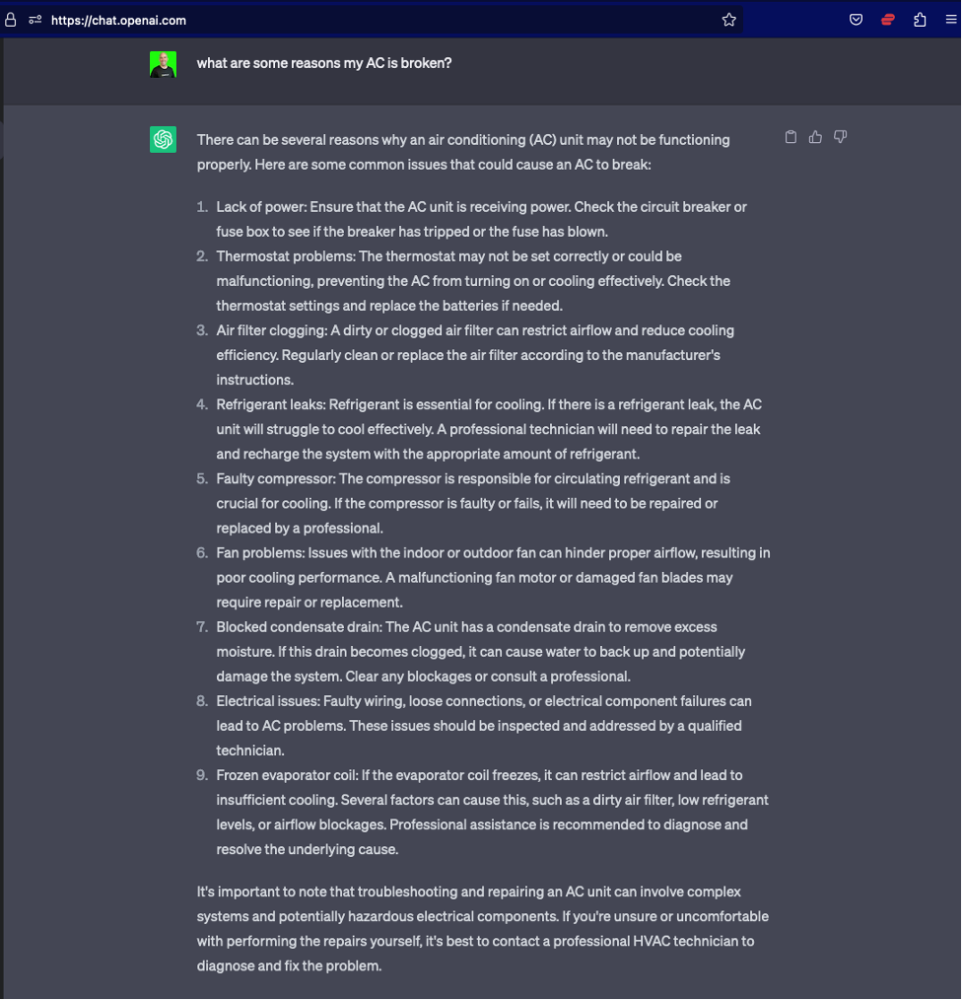
As you can see, AI provides a more robust answer to my question, which is great for the searcher. They don’t have to click anything or go anywhere because they’ve gotten exactly the answer they needed.
But where did this information come from? ChatGPT claims to get its information from Wikipedia, news portals, government and agency websites, scientific journals, books, textbooks, films and documentaries, podcasts, online courses, and social media – all sources created by human beings that we can assume would really like credit, and possibly some web traffic, for their part in creating that content in the first place.
Consider the ramifications. For decades Google has been encouraging businesses to create valuable content and they have been ranking those businesses in exchange for their efforts. Today, they still get ranked, but in a way that doesn’t require the searcher to click through to their website.
As for AI… we don’t really know where the answers came from. Did some of them come from Fred’s website? There’s no way to know. What we do know is this: whoever provided that information is not getting credit, clicks, or web traffic.
So where does that leave us?
What if there was a marketing channel that increased brand and business name searches? What if Fred’s could get their brand in front of a targeted audience, say owners of homes that are 15 to 20 years old, about the age when AC units start to fail? And what if Fred’s used reach and frequency, a brilliant call to action, and clear branding in the form of display or video ads? What might then happen when one of the people to whom Fred’s has shown their ads finds themselves with a broken air conditioner?
Would they… just maybe… think of Fred’s, instead of searching for AC repair-related keywords?
Yes. One of the most assured outcomes of a well-executed display or video campaign is an immediate increase in brand and business name searches for the advertiser. And here’s what a Google search for Fred’s business name looks like:
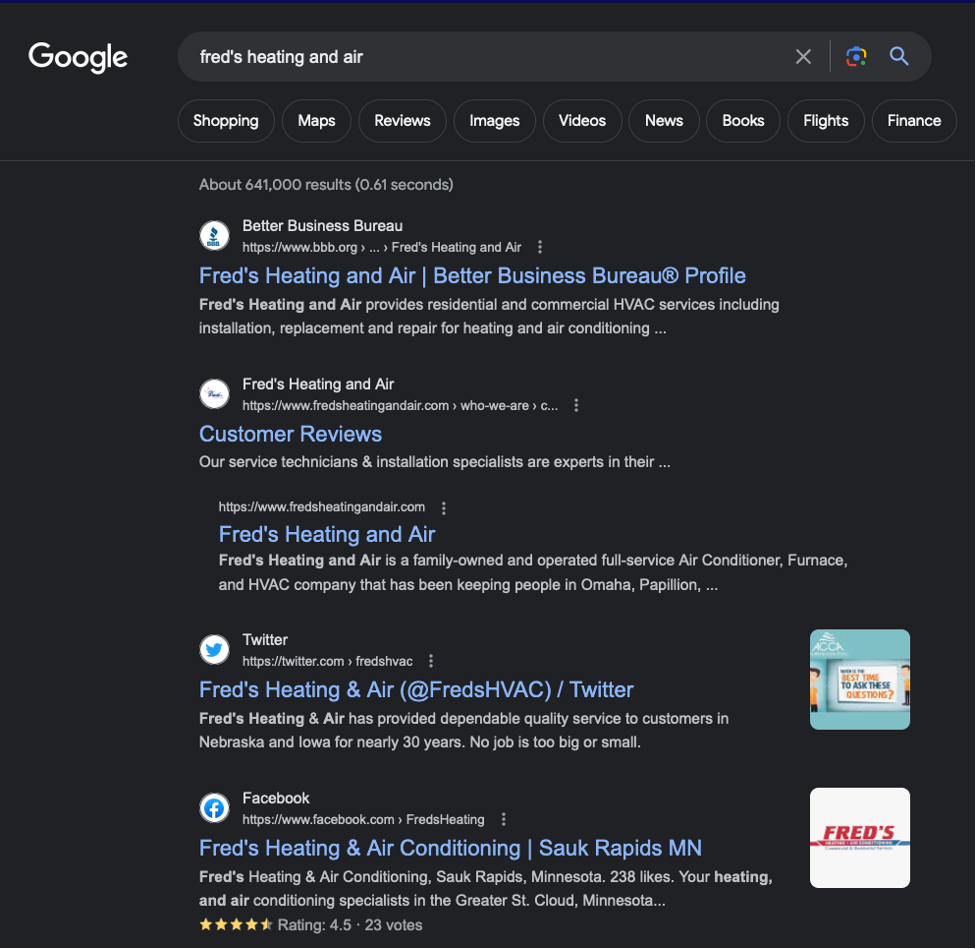
Fred’s has this SERP pretty much wrapped up. And yes, the searcher does have to click through to get in touch with (and hopefully hire) Fred’s. This is a good result for Fred’s, with no sign of Google attempting their zero click strategy. This is a great way for Fred’s to get more clicks, web traffic, and leads.
As for AI, at the time of this writing, it’s not providing directory information so it’s unlikely the prospect would even think to ask AI for Fred’s contact information.
If advertisers aren’t happy with Google’s zero click strategy or AI’s role in how consumers find their business, I hope they’ll remember that display advertising, video ads, and even connected TV commercials provide an avenue for brand recall that gets their prospects to look for them by name. And in the worlds of zero click and AI, brand name searches are a very good thing.
Thanks for reading. -David McBee

